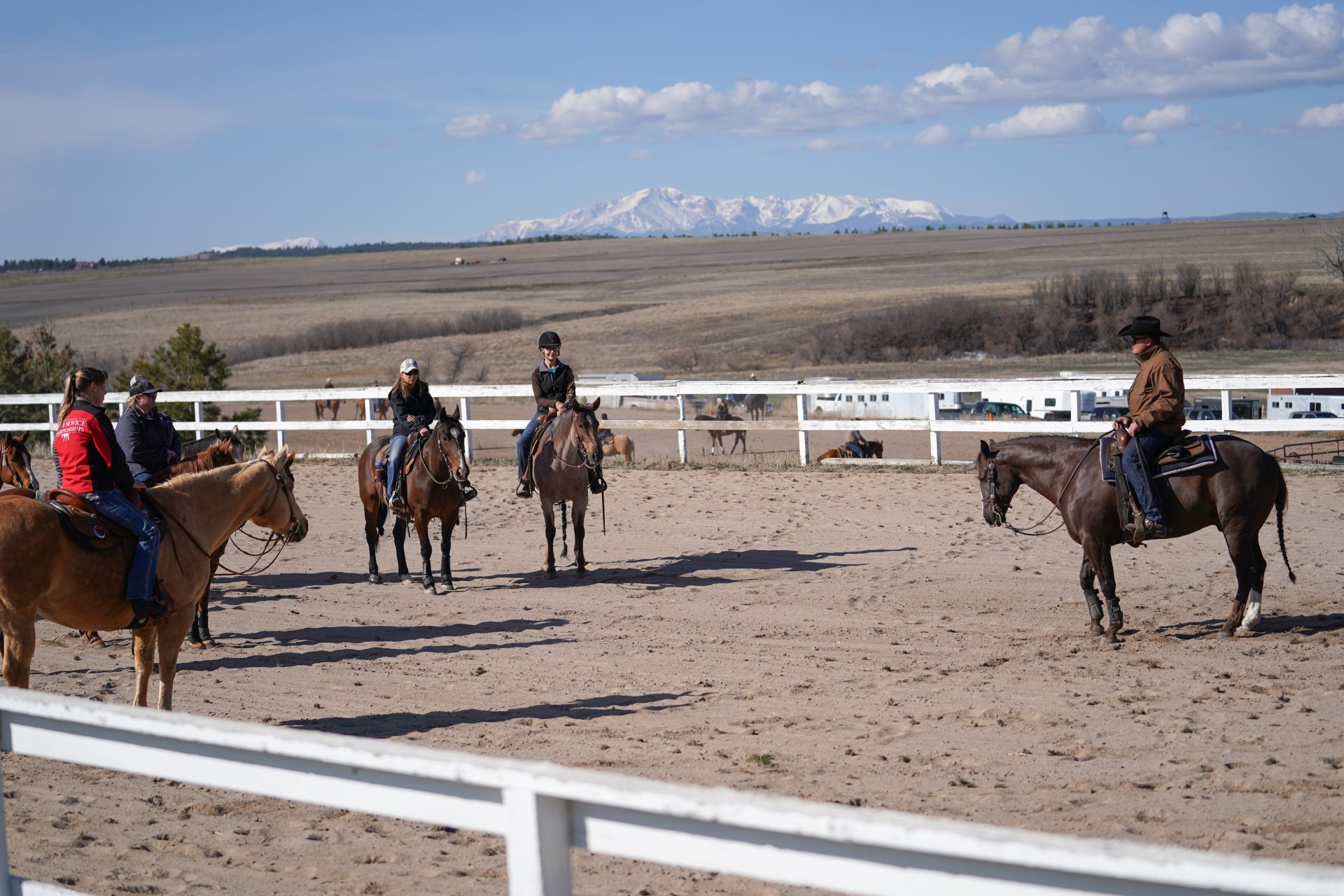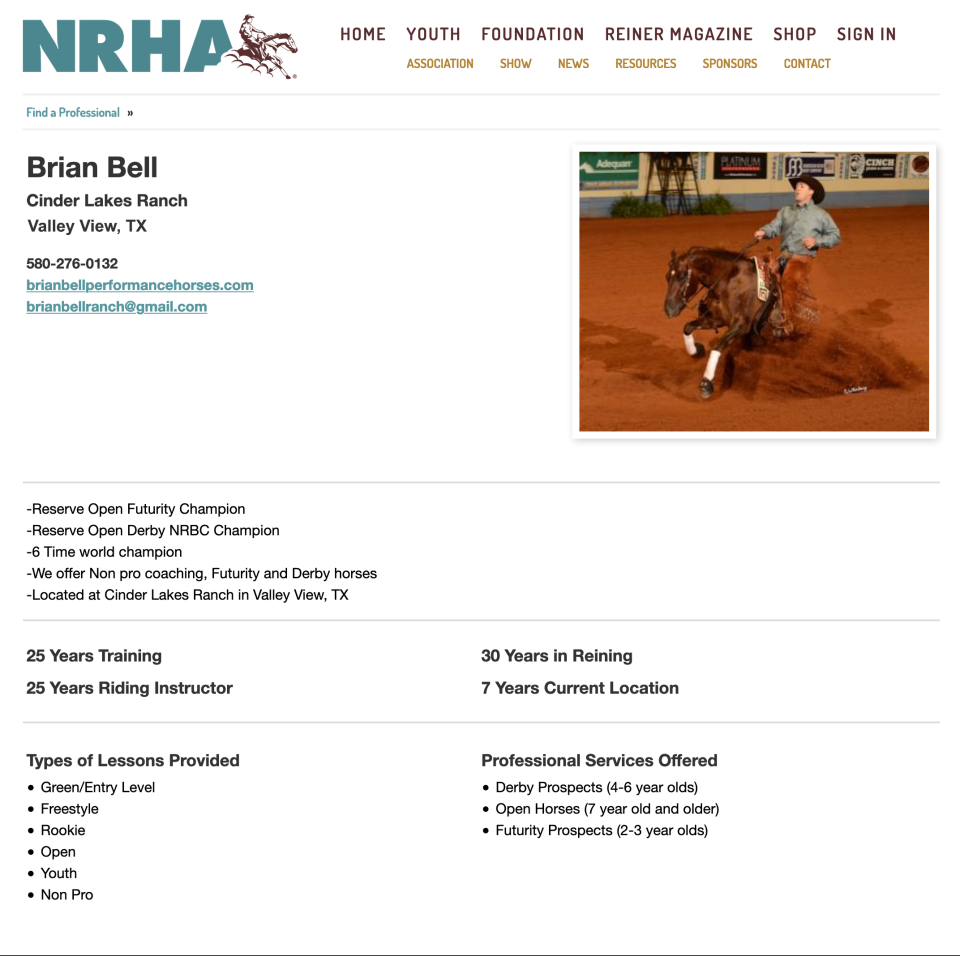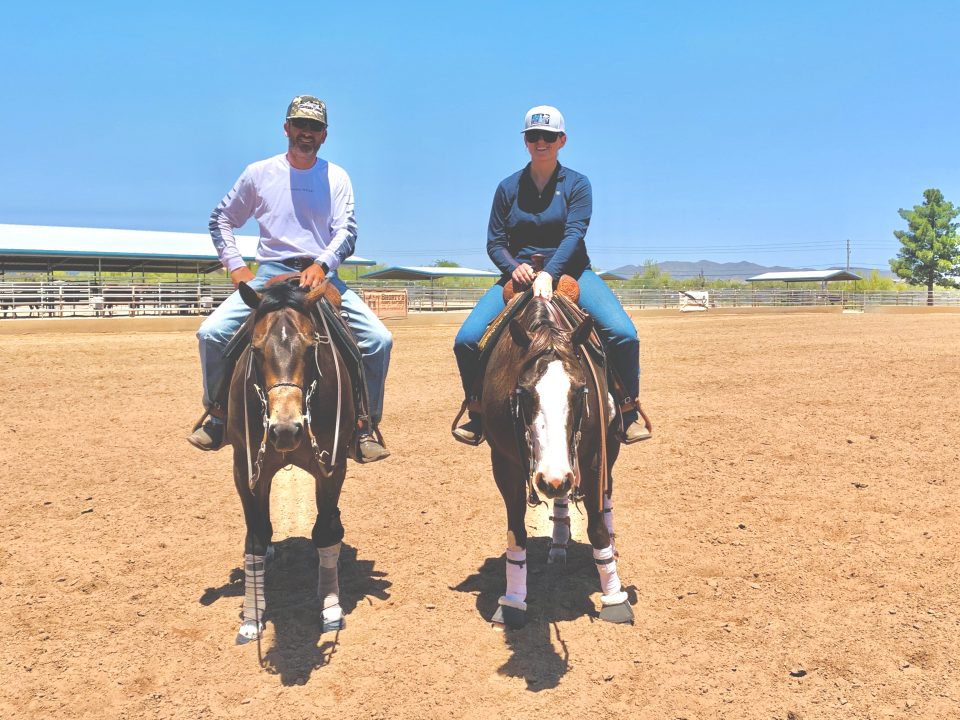NRHA Professionals are learning to branch out from strictly training horses to help pay the bills. Could a side hustle help you boost your income?
By Megan Arszman

Being a horse trainer takes passion and dedication, as well as the cliché blood, sweat, and tears. There are long hours in the saddle, hay to throw, and colts to start. It can take a toll even young bodies. That toll can determine the longevity of your career. This is why it can be beneficial for NRHA Professionals to look outside the training arena for other options to help pay the bills and keep your business profitable.
“You can only make so much money in your training fees,” said NRHA Professional and Million Dollar Rider Mike McEntire. “A trainer should try to do something besides training horses, whether it’s buying and selling a few horses, giving lessons, or something else.”
Professional horsemen have been practicing the art of the side hustle for generations; there just wasn’t a set name for it. Most NRHA Professionals know that there’s more to being a trainer than just showing and training. For some, it’s about coaching non pros, youths, and rookies; others might take on young colts to start.
McEntire and fellow NRHA Professionals Linde von Koeding and NRHA Eight Million Dollar Rider Andrea Fappani have learned that having a side hustle (or three) not only helps supplement the income, but also helps you be a better all-around trainer.
“I don’t like to put all my eggs in one basket,” said von Koeding. “But the biggest benefit for me with everything I do is that it makes me a better trainer, better coach, and a better show-woman.”
In this series, these three pros share what they’ve been doing to expand the outreach of their businesses.
Part 3: Selling and Catch-Riding
Coaching and Clinics
For most trainers, coaching non pros and youth riders goes hand in hand with training, but it requires more time than just training your own open horse because you’re doing double-duty training the horse and the rider.
But it’s not only the clients that need coaching. Sometimes, the coaches need a few tips every now and then. That’s when the 33 years of experience McEntire has comes into play.
“I got into helping fellow trainers not because I didn’t have anything to do, but because I’ve gained a lot of experience thanks to the guys I’ve ridden with and the lessons I’ve learned,” he said.
McEntire’s knowledge comes from years of training and showing, riding with legendary riders such as Bob Loomis and Tim McQuay, and training horses all the way from 2-year-olds to aged champions. “I try to stay current to assist with my own training, and I’m always happy to share that knowledge to help everyone,” he said.
Another way to share your expertise is one of the best ways to expand your brand. Both Fappani and McEntire have recognized how offering clinics across the country, and sometimes around the world, allows you to not only travel, but share your knowledge and skills with a new crowd of potential customers.
Just like judging, scheduling clinics among a busy training and show schedule can be difficult, but McEntire has found that most hosts are able to accommodate a tight schedule. Clinics can last as long as a few hours to a couple of days, depending on the nature of the information and your own goals and comfort level. McEntire typically does two to five clinics a year.
Fappani used clinics as a way to get his name out there and showcase his skills. They were more of a building block to his next steps, but an important one, nonetheless. “I wanted people to see that the name Fappani was connected to quality and honesty,” he said.
Read the rest of this series at the links above.



